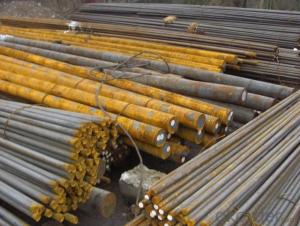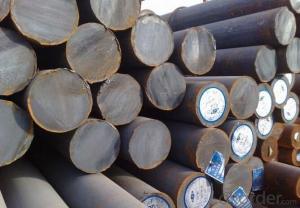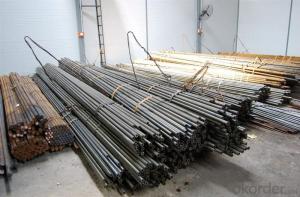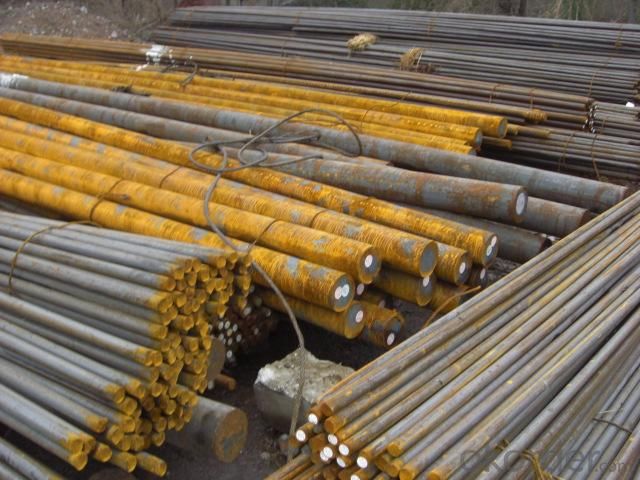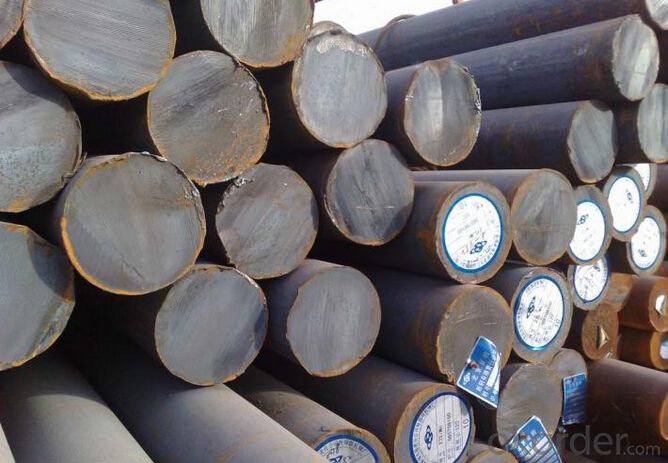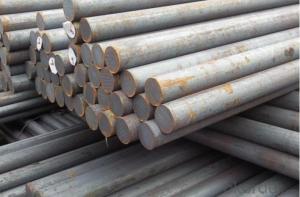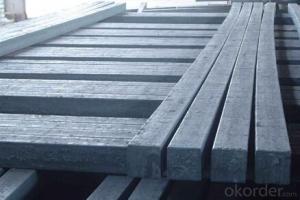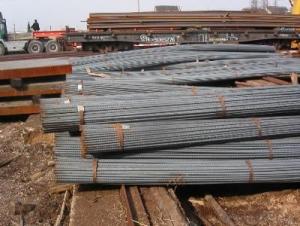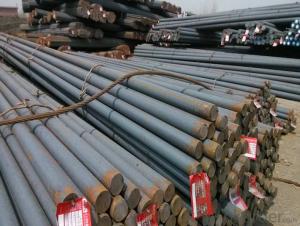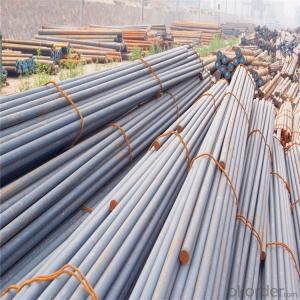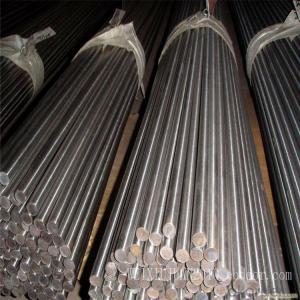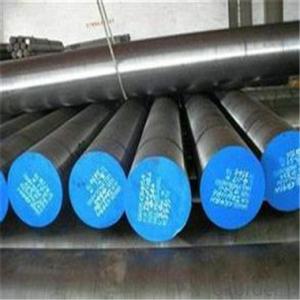Special Steel ASTM DIN JIS Standard 1020 Carbon Steel
- Loading Port:
- China main port
- Payment Terms:
- TT OR LC
- Min Order Qty:
- 30 m.t.
- Supply Capability:
- 10000 m.t./month
OKorder Service Pledge
OKorder Financial Service
You Might Also Like
Specification
Product information:
Specifications
Material | AISI 1020, S20C, C22,1.0402 | Round bar | Dia(mm) | Max 700 |
Process | EAF + LF + VD + Forged + Heat Treatment (optional) | Length (mm) | Max 12000 | |
Heat treatment | Normalized / Annealed / Quenched / tempered | Plate bar | Thickness(mm) | Max 200 |
Delivery condition | Hot forged +Rough machined (black surface after Q/T)+ Turned (optional) | Width(mm) | Max 3000 | |
Test | Ultrasonic test according to SEP 1921-84 D/d | Length (mm) | Max 12000 |
Chemical Composition
Standards: ASTM,JIS,GB,EN(DIN,BS,NF)
Grade | C | Si | Mn | Cr | Ni | Cu |
AIAI 1010 | 0.17~0.23 | 0.17~0.37 | 0.35~0.65 | ≤0.25 | ≤0.30 | ≤0.25 |
Application
Carbon steel rod applies to chemical industry, shipping industry,manufacturing industry, construction, decorate industry, electric power, pump shafts, sanitary wares, furniture handles, boiler, high temperature resistant,low temperature resistant,corrosion resistant
Product Show:
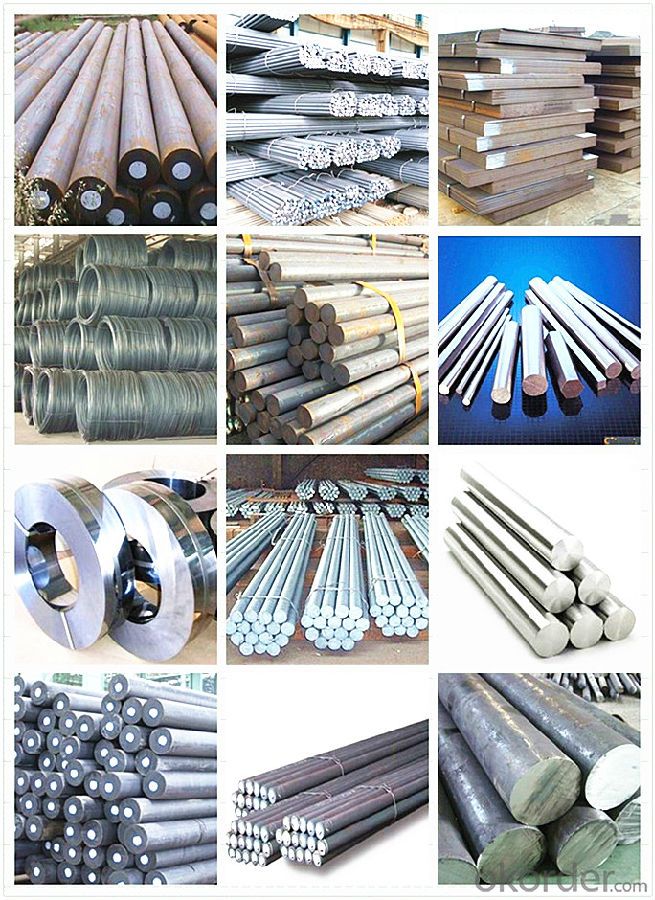
Workshop Show:
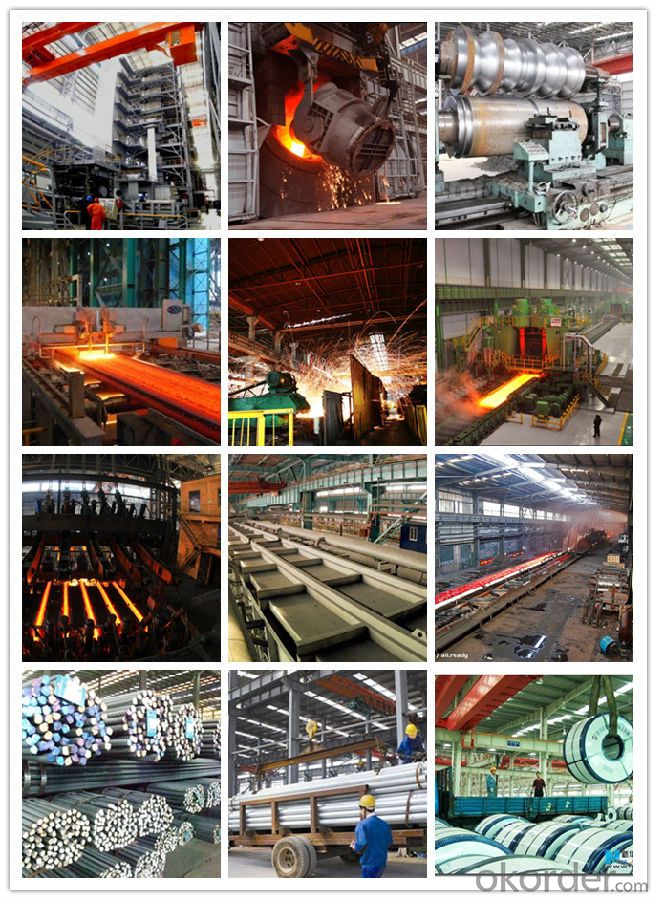
Shipping
1. FedEx/DHL/UPS/TNT for samples, Door-to-Door;
2. By Air or by Sea for batch goods, for FCL; Airport/ Port receiving;
3. Customers specifying freight forwarders or negotiable shipping methods!
Delivery Time: 3-7 days for samples; 5-25 days for batch goods.
Payment Terms
1.Payment: T/T, L/C, Western Union, MoneyGram,PayPal; 30% deposits; 70% balance before delivery.
2.MOQ: 1pcs
3.Warranty : 3 years
4.Package Informations: 1) EXPORT, In 20 feet (GW 25 ton) or 40 feet Container (GW 25 ton)
2)as customer's requirement
Why choose us?
(1) The leading exporter in China special steel industry.
(2) Large stocks for various sizes, fast delivery date.
(3) Good business relationship with China famous factories.
(4) More than 7 years steel exporting experience.
(5) Good after-sales service guarantee.
- Q: What are the different oil and gas grades of special steel?
- There are several different oil and gas grades of special steel that are commonly used in the industry. These grades are specifically designed to withstand the harsh environments and high temperatures associated with oil and gas exploration and production. Some of the most commonly used grades include: 1. API 5CT: This grade is specifically designed for use in casing and tubing applications. It has high strength and excellent resistance to corrosion, making it ideal for use in demanding oil and gas environments. 2. API 5L: This grade is used for pipeline transportation systems in the petroleum and natural gas industries. It has excellent mechanical properties and is designed to withstand high pressure and temperature conditions. 3. NACE MR0175/ISO 15156: This grade is compliant with the NACE MR0175/ISO 15156 standard, which specifies the requirements for the use of metallic materials in oil and gas production environments containing H2S (sour service). These grades have high resistance to sulfide stress cracking and hydrogen-induced cracking. 4. Duplex Stainless Steel: This grade is used in applications where high strength, corrosion resistance, and resistance to stress corrosion cracking are required. It is commonly used in offshore oil and gas production, as well as in subsea equipment. 5. Super Duplex Stainless Steel: This grade offers even higher strength and corrosion resistance than duplex stainless steel. It is commonly used in demanding oil and gas applications, such as subsea and deepwater equipment. These are just a few examples of the different oil and gas grades of special steel available in the market. The selection of the appropriate grade depends on the specific application, operating conditions, and requirements of the project. It is crucial to consult with experts or refer to industry standards and specifications to ensure the right grade is chosen for a particular oil and gas project.
- Q: What are the properties of precipitation-hardening steel?
- Precipitation-hardening steel, also known as PH steel, possesses several notable properties. One of its key features is its ability to be strengthened through a heat treatment process, known as precipitation hardening. This process involves heating the steel to a specific temperature and then rapidly cooling it, followed by aging at a lower temperature. This treatment causes the formation of fine particles within the steel, leading to increased strength and hardness. Another important property of precipitation-hardening steel is its excellent combination of strength and corrosion resistance. This steel alloy is often used in applications where both high strength and resistance to corrosion are required, such as in aerospace and marine industries. Additionally, precipitation-hardening steel offers good weldability, making it suitable for various fabrication processes. Furthermore, this type of steel is known for its versatility as it can be tailored to meet specific mechanical properties by adjusting the heat treatment parameters. This allows manufacturers to customize the steel's strength, toughness, and other characteristics according to the desired application. In summary, precipitation-hardening steel is characterized by its ability to be strengthened through a heat treatment process, its excellent combination of strength and corrosion resistance, and its versatility in achieving desired mechanical properties.
- Q: Can special steel be used in the production of precision instruments?
- Yes, special steel can be used in the production of precision instruments. Special steel, known for its high strength, corrosion resistance, and heat resistance, provides the necessary durability and stability required for precise measurements and operations in precision instruments.
- Q: How does special steel contribute to the manufacturing of medical implants?
- The unique properties and characteristics of special steel make it vital in the production of medical implants. These implants need materials that are durable, corrosion-resistant, and biocompatible. Stainless steel, titanium alloys, and cobalt-chromium alloys are special steels that possess these desired qualities, making them ideal for medical implant manufacturing. Stainless steel, for instance, is widely used in the production of medical implants due to its exceptional corrosion resistance and high strength. It finds applications in surgical instruments, orthopedic implants, and dental devices. Stainless steel implants can endure the harsh physiological conditions within the body, ensuring long-term performance and reducing the risk of complications. Titanium alloys, on the other hand, are extensively utilized in medical implant manufacturing. These alloys offer a high strength-to-weight ratio, excellent biocompatibility, and corrosion resistance. Orthopedic surgeries, including joint replacements, as well as dental implants, commonly employ titanium implants. The biocompatible nature of titanium allows for better integration with the surrounding bone, facilitating faster healing and reducing the risk of rejection. Cobalt-chromium alloys are also utilized in the production of medical implants. These alloys possess outstanding mechanical strength, wear resistance, and biocompatibility. Orthopedic surgeries and cardiovascular interventions, such as stents, often make use of cobalt-chromium implants. Their high strength ensures stability and durability, while their biocompatibility minimizes adverse reactions and aids in patient recovery. Overall, special steel provides the necessary qualities for manufacturing medical implants. Whether it is stainless steel, titanium alloys, or cobalt-chromium alloys, these materials contribute to the creation of biocompatible, corrosion-resistant, and durable implants that enhance patients' quality of life and ensure successful medical procedures.
- Q: What are the different automotive grades of special steel?
- There are several different automotive grades of special steel, including stainless steel, high-strength steel, advanced high-strength steel, and ultra-high-strength steel. These grades offer varying levels of corrosion resistance, durability, and strength, making them suitable for different automotive applications.
- Q: What are the different types of corrosion-resistant steel?
- There are several different types of corrosion-resistant steel, including stainless steel, galvanized steel, weathering steel, and nickel alloy steel.
- Q: Is special steel resistant to chemical corrosion?
- Yes, special steel is generally resistant to chemical corrosion. Special steel, also known as stainless steel, is a type of alloy that contains a minimum of 10.5% chromium. The addition of chromium in the steel composition forms a passive oxide layer on the surface, which acts as a protective barrier against corrosion. This oxide layer is highly stable and prevents the steel from reacting with various chemicals and corrosive substances. Additionally, special steel may also contain other alloying elements such as nickel, molybdenum, and titanium, which further enhance its resistance to chemical corrosion. These elements increase the steel's ability to withstand exposure to acids, alkalis, salts, and other corrosive agents commonly found in industrial and environmental settings. However, it is important to note that the resistance of special steel to chemical corrosion may vary depending on the specific grade and composition. Different grades of stainless steel offer different levels of corrosion resistance, and it is crucial to select the appropriate grade based on the intended application and the specific corrosive environment. In summary, while special steel is generally resistant to chemical corrosion, the specific resistance can vary depending on the grade and composition. Therefore, it is essential to consider the specific requirements and consult with experts to choose the most suitable special steel for a particular application.
- Q: How does the hardness of special steel affect its performance?
- The hardness of special steel directly affects its performance as it determines its ability to withstand wear, deformation, and damage under various operating conditions. A harder steel will generally have improved resistance to abrasion, impact, and fatigue, making it more suitable for demanding applications where durability and strength are crucial. Additionally, hardness can affect other properties such as machinability, formability, and corrosion resistance, influencing the overall performance and longevity of the special steel in its intended use.
- Q: How does special steel contribute to the electrical resistance of products?
- Special steel can contribute to the electrical resistance of products by providing a higher resistance to the flow of electric current. This is achieved by alloying the steel with specific elements that increase its resistivity, making it suitable for applications where low electrical conductivity is desired.
- Q: What are the environmental considerations associated with special steel production?
- Special steel production can have several environmental considerations due to its resource-intensive nature and the emissions generated during the production process. One of the main environmental considerations associated with special steel production is the extraction of raw materials. Special steel requires specific alloys and additives, which often involve the extraction of rare or valuable metals. Mining for these materials can have significant environmental impacts, including habitat destruction, soil erosion, water pollution, and the release of toxic substances. Another consideration is the energy consumption during the production process. Special steel production involves several energy-intensive stages, such as melting, refining, and shaping. These processes typically rely on fossil fuels, which contribute to greenhouse gas emissions and air pollution. Additionally, the high temperatures required for steel production contribute to significant carbon dioxide emissions, a major contributor to climate change. Water usage is also a concern in special steel production. The production process requires a substantial amount of water for cooling, cleaning, and lubrication. This can lead to water scarcity and pollution if not managed properly. The effluents generated during the production process can contain heavy metals, acids, and other pollutants, which can harm aquatic ecosystems if not adequately treated. Waste generation is another environmental consideration. Special steel production generates various types of waste, including slag, dust, and sludge. These wastes can contain heavy metals, toxins, and other pollutants. Proper disposal or treatment of these wastes is essential to prevent pollution of soil, water, and air. Lastly, the transportation of raw materials and finished products in special steel production can contribute to carbon emissions and air pollution. The long-distance shipping of raw materials and finished steel products can add to the overall environmental footprint of the industry. In conclusion, special steel production has several environmental considerations, including the extraction of raw materials, energy consumption, water usage, waste generation, and transportation. To mitigate these impacts, companies should prioritize sustainable sourcing of raw materials, invest in energy-efficient technologies, promote water conservation and treatment practices, manage and minimize waste generation, and explore cleaner transportation options.
Send your message to us
Special Steel ASTM DIN JIS Standard 1020 Carbon Steel
- Loading Port:
- China main port
- Payment Terms:
- TT OR LC
- Min Order Qty:
- 30 m.t.
- Supply Capability:
- 10000 m.t./month
OKorder Service Pledge
OKorder Financial Service
Similar products
Hot products
Hot Searches
Related keywords
